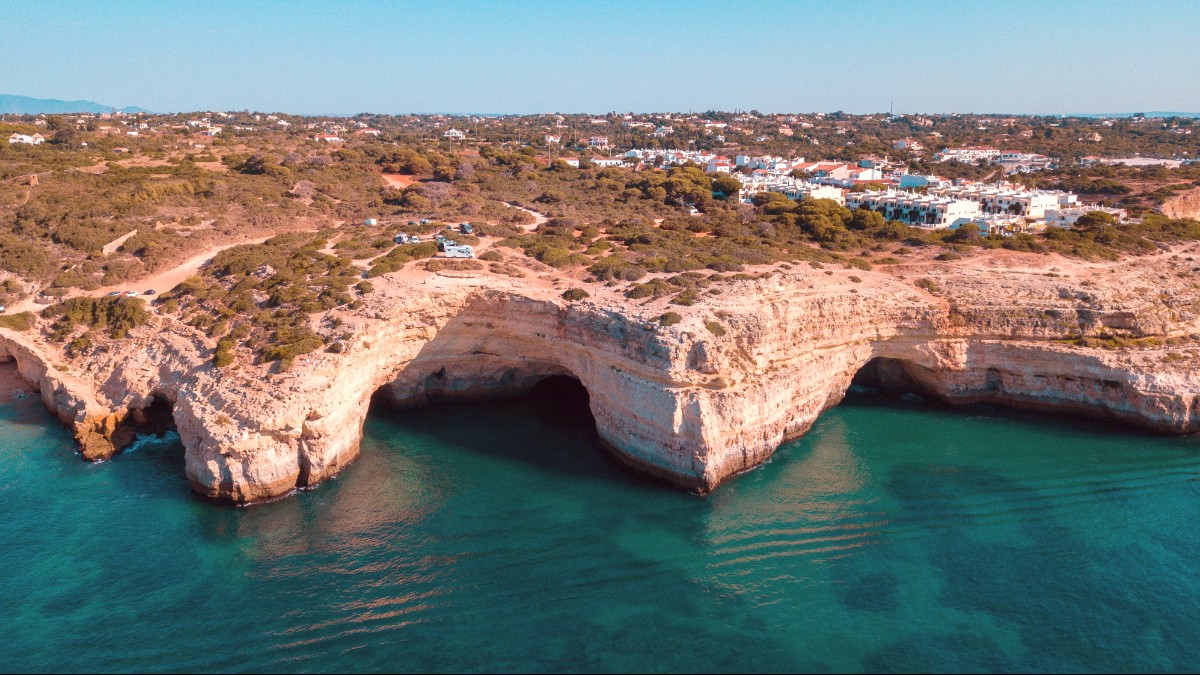
The Algarve, Portugal
The natural landscape around Faro, especially the Ria Formosa, has a superb setting for outdoor adventures.
The park has numerous boardwalks and dirt paths suitable for easy to moderate walking, offering peaceful experiences close to the city.
Essential for exploring Ria Formosa islands. Many tours stop for swimming.
Several operators in Faro Marina offer tours for dolphin watching, with frequent sightings. Snorkeling is possible in clear waters around barrier islands.
For water sports, always use reputable operators and proper safety equipment. Heed local warnings about currents or weather conditions.
Faro has various ways to immerse yourself in Portuguese culture, from hands-on workshops to traditional performances and community interactions.
Some restaurants or cultural venues in Faro may offer Fado performances. This melancholic and expressive music provides a deep cultural experience.
Traditional Portuguese folk dancing and music are sometimes performed at local festivals, community events, or special tourist-oriented evenings.
Check local calendars for specific dates and venues for cultural performances.
Support local island restaurants and businesses in communities that maintain traditional livelihoods for genuine interaction.
Short-term language courses may be available at local schools or the University of Algarve.
Faro hosts various cultural and food-related events throughout the year, including Festa da Ria Formosa and Carnival.
Faro has opportunities for relaxation and wellness, from spa treatments to tranquil natural settings.
No natural hot springs directly in Faro or its immediate vicinity. For such experiences, travel to other regions of Portugal.
Some yoga studios in Faro offer drop-in classes. Dedicated retreats are more common in quieter, rural parts of the Algarve.
Praia de Faro has several beach bars with sun loungers. Many hotels have outdoor pools, some with rooftop pools and city views.
Explore the peaceful pathways of Ria Formosa Natural Park for a serene outdoor experience.
Enjoy the golden hour from Faro Cathedral bell tower or a waterfront cafe for calming city views.
Take a ferry to the less crowded barrier islands for pristine, quiet beaches.
Faro has a modest but enjoyable nightlife scene, concentrated in specific areas, with options for live music, dancing, and relaxed evenings.
Faro's nightlife is more modest compared to larger resort towns, but it has options for dancing. The scene concentrates in the Baixa area and around the marina.
Streets around the marina and within the Baixa, specifically Rua Conselheiro Bivar and Rua do Prior, host numerous bars and pubs, becoming lively in the evenings.
Clubs and some bars generally stay open until 4 AM or later on weekends. During the week, closing times may be earlier.
Numerous bars and pubs offer a good place to relax with a drink. Many have outdoor seating.
Some hostels or organized groups may arrange pub crawls, a social way to experience the local bar scene.
Faro hosts various cultural and music events throughout the year. Check local listings for what's on.
Always prioritize personal safety when out at night. Travel in groups and use licensed taxis or ride-sharing services for transport.
Faro has a variety of shopping experiences, from traditional markets to artisan workshops and modern retail.
Small artisan shops can be found within the Old Town and the Baixa. They sell locally made ceramics, cork products, lace, and traditional sweets.
Portugal is a major producer of cork. You will find wallets, bags, shoes, and decorative items made from cork. They are sustainable and unique souvenirs.
Hand-painted pottery and azulejos (traditional Portuguese tiles) make beautiful, colorful souvenirs. Purchase local almond and fig cakes (Dom Rodrigos, Morgados).
Faro offers a diverse shopping scene, from local markets with fresh produce and unique crafts to specialty artisan shops. Consider cork products or hand-painted ceramics as authentic souvenirs.